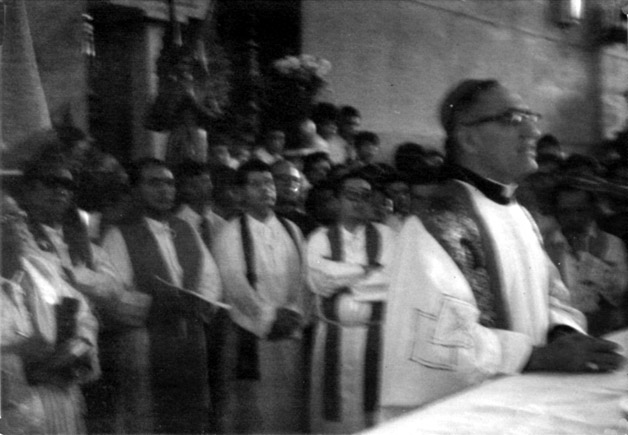
CJA sought to hold Defendant Álvaro Rafael Saravia accountable for his actions in El Salvador by using two federal statutes, the Alien Tort Statute (ATS) and the Torture Victim Protection Act (TVPA), which allow for civil suits in U.S. courts to remedy a limited set of human rights violations.
In September 2003, CJA filed a civil suit against Álvaro Rafael Saravia in the United States, where Saravia then lived, for his role in the assassination of Archbishop Romero. The suit was filed on behalf of a relative of the Archbishop, whose name was withheld for security reasons. The complaint alleged that Saravia procured weapons and other material used in the assassination, provided his personal driver to transport the assassin and paid the assassin for his services. Saravia was served with the complaint at his home address, but he failed to respond and went into hiding.
In August 2004, Judge Wanger of the U.S. District Court for the Eastern District of California, held a hearing on damages. CJA presented evidence tying Saravia to the assassination of Archbishop Romero, including testimony from Amado Antonio Garay, Saravia’s former driver who transported the assassin to and from the crime scene. On September 3, 2004, Judge Wanger issued an historic decision holding Saravia responsible for his role in the assassination of Archbishop Óscar Romero and ordering Saravia to pay $10 million to the plaintiff.
Saravia is still in hiding. Although he remains on the U.S. Immigration and Customs Enforcement’s most wanted list, there is reason to believe that Saravia now resides in Latin America.